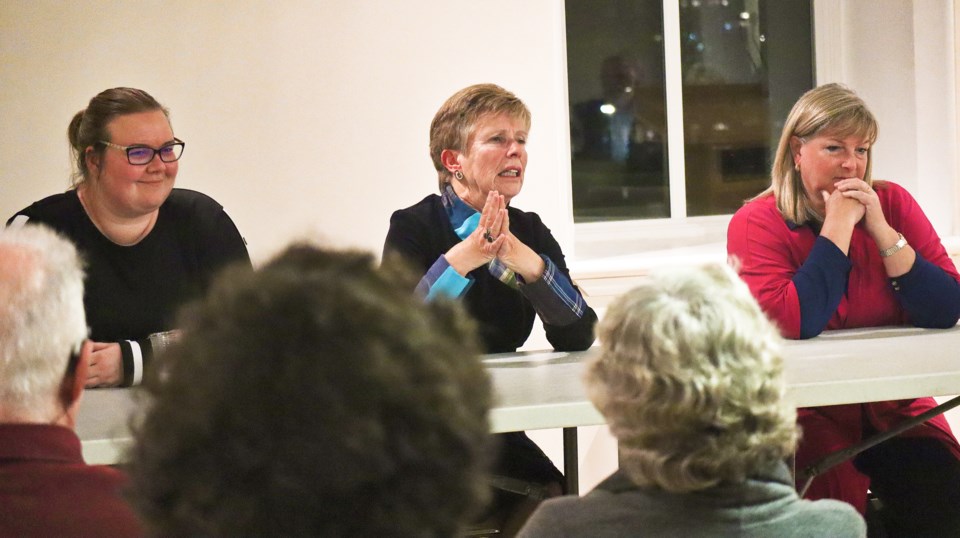Women working in the legal profession have overcome a number of hurdles related to their gender, agreed a panel of local lawyers who recently spoke about their personal struggles in the industry.
Three Guelph lawyers participated in the discussion this week as part of a book launch for Guelph & Wellington County's Legal Past: A History of the Wellington Law Association. The event took place at the Guelph Civic Museum and was jointly hosted by the Wellington Law Association and Guelph Historical Society.
Published this year, the book examines the national contributions of men and women from the area, but also the challenges female professionals faced establishing themselves. Some names in the book include Joan Heath, the first woman to practice law in Guelph, Bridgette Geisler James, Robin-Lee Norris, Jane Armstrong and others.
David Cameletti, president of Guelph Historical Society and contributor to the book, said the Wellington Law Association found 31 women and 118 men were working in the legal profession in 2016.
In addition to the panel discussion, participants learned about the book and listened to a presentation on Patrick Kewin, a prominent Guelph lawyer who went on to became the Chief Justice of Canada, which was given by his grandson, Stephen McKenna.
In 1979, Inga Rinne said she was the third woman to practice law in Guelph. Back then, she recalls there were no change rooms for women at the Guelph courthouse, and she would change into robes in a jurors' room with the door guarded by a clerk.
"In those days, the word accommodation wasn't used with the same frequency as it is today. Accomodation was not the question, the question was, 'How do I fit in?'" said Rinne about not asking for accommodations to appear competent.
Diane Squires, a solicitor and partner at SV Law, said she was oblivious to the challenges women faced, as she grew up in a household where both genders were expected to go to university. Prior to moving to Guelph, Squires was an articling student in the late '80s working for a business law firm in Toronto.
"There were a couple of exceptions, but I always put that to the person as opposed to the entrenchment," said Squires, "and some of the comments, I attribute today to my youth as well."
While both said they never received direct comments about their gender in the profession, Rinne and Squires agreed a major challenge for them was maternity leave. Squires commented she wouldn't have been able to afford having three children if she wasn't living in Guelph.
"I often would put the children to bed and go to work at night and that's how I would accommodate my schedule," said Squires.
Rinne adds maternity leave became more challenging as more women entered the profession.
"There was a particular study I took part in many years ago, on the retention rate among female practitioners, and the retention rate was not good in my day, and it's still not good," said Rinne.
The third speaker, Jennifer Eensild, said women who came before her had to fight to be in the room. While she thinks women are now in that room, Eensild said comments have been made more directly at her, including being told she shouldn't be a lawyer because of her gender.
"I've been called a 'bitch' for holding to a position," said Eensild, an associate lawyer at MFC Lawyers, "male lawyers have slammed their hands on tables in mediation rooms in front of me when I've maintained a boundary on behalf of my client, and those are all things, while they don't seem huge in the grand scheme of the day, they add up over months and years, and they wear you down."
While Eensild said these experiences haven't happened to her while working in Guelph, she said it is important to talk about these things.
"Those are the things that I'm asking you, especially as male colleagues, stand up for your female colleagues when you see that happen to them."
